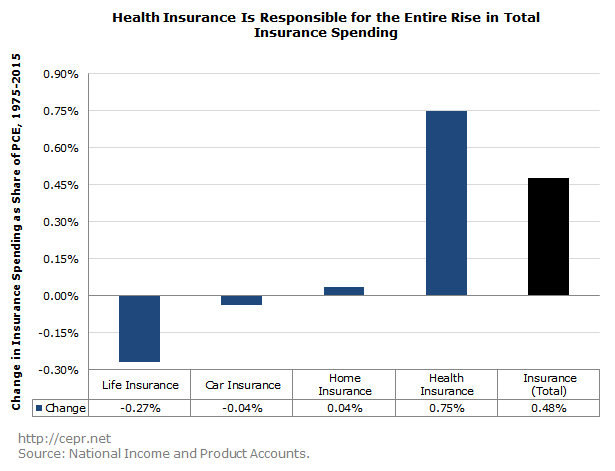Yes-private health insurance can cover the costs of attending rehab in Georgia, depending on your specific plan, provider network, and the type of treatment you need. Many individuals seeking help for substance use disorders or co-occurring mental health conditions understandably worry about affordability, and insurance coverage is often the first question they ask.
The good news is that under the Affordable Care Act (ACA), mental health and substance use disorder services are considered essential health benefits.
This means most private insurance plans are required to offer some level of coverage for addiction treatment. However, the scope and limits of that coverage can vary widely, especially in Georgia.
In this article for DailyTrust, we’ll break down what you need to know about using private health insurance for rehab, including how it works, what it typically covers, and what options you have if you’re seeking treatment in the state of Georgia.
Understanding Private Health Insurance Coverage for Rehab in Georgia
To understand whether your private insurance plan will cover rehab in Georgia, it’s important to look at several key factors: your plan type (HMO, PPO, POS, etc.), your insurance provider’s network, whether the facility is in-network or out-of-network, and the specific types of treatment services required.
Typically, private insurance plans will cover some combination of detox, inpatient rehab, outpatient programs, therapy sessions, and aftercare planning.
However, each of these may be covered at different rates, and prior authorization is often required before services can begin. Coverage also depends on the medical necessity of treatment, as determined by your provider and insurance company. The best way to confirm coverage is to contact the rehab facility directly-they can verify your insurance benefits and help you understand what’s included.
For example, if you’re looking for a leading GA rehab that accepts Emblem insurance, there are accredited centers in the state that can walk you through the process from verification to admission.
Types of Rehab Treatment Covered by Private Insurance in Georgia
Private insurance plans in Georgia typically provide varying degrees of coverage for the following levels of care:
Detoxification
Medically supervised detox is often the first step in addiction recovery and is commonly covered by insurance when deemed medically necessary. This process can last several days and helps individuals safely withdraw from substances like alcohol, opioids, or benzodiazepines.
Inpatient Residential Treatment
This involves staying at a treatment facility 24/7 for a designated period. It’s one of the most intensive forms of treatment and may be recommended for those with severe substance use disorders or co-occurring conditions. Many private insurance plans cover part or all of the costs if the treatment is within the plan’s network.
Partial Hospitalization Programs (PHP)
PHPs allow patients to receive structured treatment during the day while returning home at night. It’s more affordable than inpatient rehab and is often a covered option for those transitioning from higher levels of care.
Intensive Outpatient Programs (IOP)
IOPs typically consist of several sessions per week, offering flexibility for people who are working, attending school, or managing family responsibilities. Many insurance plans recognize IOPs as cost-effective alternatives to inpatient rehab and provide partial or full coverage.
Outpatient Therapy and Counseling
Ongoing therapy sessions, including individual, group, and family therapy, are usually covered under mental health provisions. These services help reinforce long-term recovery and relapse prevention strategies.
How to Verify Your Private Insurance for Rehab in Georgia
If you’re wondering how to actually apply your private health insurance to cover rehab costs, here’s a quick step-by-step guide:
Contact the Rehab Facility – Most reputable centers have admissions teams that handle insurance verification and can tell you whether they’re in-network with your provider.
Call Your Insurance Provider – Ask about your behavioral health benefits, including coverage for substance use treatment, co-pays, deductibles, and pre-authorization requirements.
Review the Summary of Benefits – Your plan’s Summary of Benefits and Coverage (SBC) can usually be found online or in your enrollment materials. Look for the sections on mental/behavioral health and inpatient/outpatient treatment.
Consider In-Network vs. Out-of-Network – In-network facilities usually cost less out-of-pocket. Going out-of-network might still be possible, but you may face higher co-insurance rates or need to pay upfront and seek reimbursement.
What Insurance Providers Typically Cover Rehab in Georgia?
Some of the major private insurance providers offering coverage in Georgia include Blue Cross Blue Shield of Georgia, Aetna, Cigna, UnitedHealthcare, Humana, and EmblemHealth. Coverage will differ between providers and even between different plans under the same provider.
For example, a PPO plan with Aetna might cover a broader network of facilities for drug and alcohol rehab, while an HMO plan might limit you to a smaller list of pre-approved treatment centers.
If you’re specifically looking for a leading GA rehab that accepts Emblem insurance, make sure to verify whether the treatment center is part of Emblem’s provider network and whether prior authorization is needed. Facilities that accept Emblem are typically experienced in helping clients navigate the claims process.
Does Insurance Cover Rehab in GA: Challenges You Might Face with Insurance Coverage
Even though private insurance can help cover the cost of rehab in Georgia, several challenges may arise:
Preauthorization Requirements
Most insurance plans require preauthorization for rehab services. This means a healthcare provider must confirm that treatment is medically necessary before the insurance company agrees to pay. Delays in this process can affect admission timelines.
Treatment Denials
Insurance companies may deny claims for various reasons: insufficient documentation, out-of-network status, or disputes over medical necessity. If this happens, you can appeal the decision with the help of your provider or treatment center.
Limitations on Length of Stay
Many plans have strict limits on how long they’ll pay for inpatient rehab. If your clinical team believes you need longer care than your insurance will cover, you may be faced with either paying out-of-pocket or transitioning to a lower level of care prematurely.
Out-of-Pocket Costs
Even with insurance, you may still be responsible for deductibles, co-pays, and co-insurance. It’s essential to get a cost estimate upfront so you’re not surprised by bills later on.
Using Employer-Sponsored and Government-Backed Plans
If you have employer-sponsored insurance-particularly through government employment-you may be eligible for comprehensive mental health and addiction treatment services.
Many government workers are enrolled in robust plans like the Federal Employees Health Benefits (FEHB) Program or state-level options with broad behavioral health networks.
Provided by SyndiGate Media Inc. (
Syndigate.info
).







